
Library of sustainability resources
Example hero paragraph text.
Municipal/urban sustainability
City sustainability plans
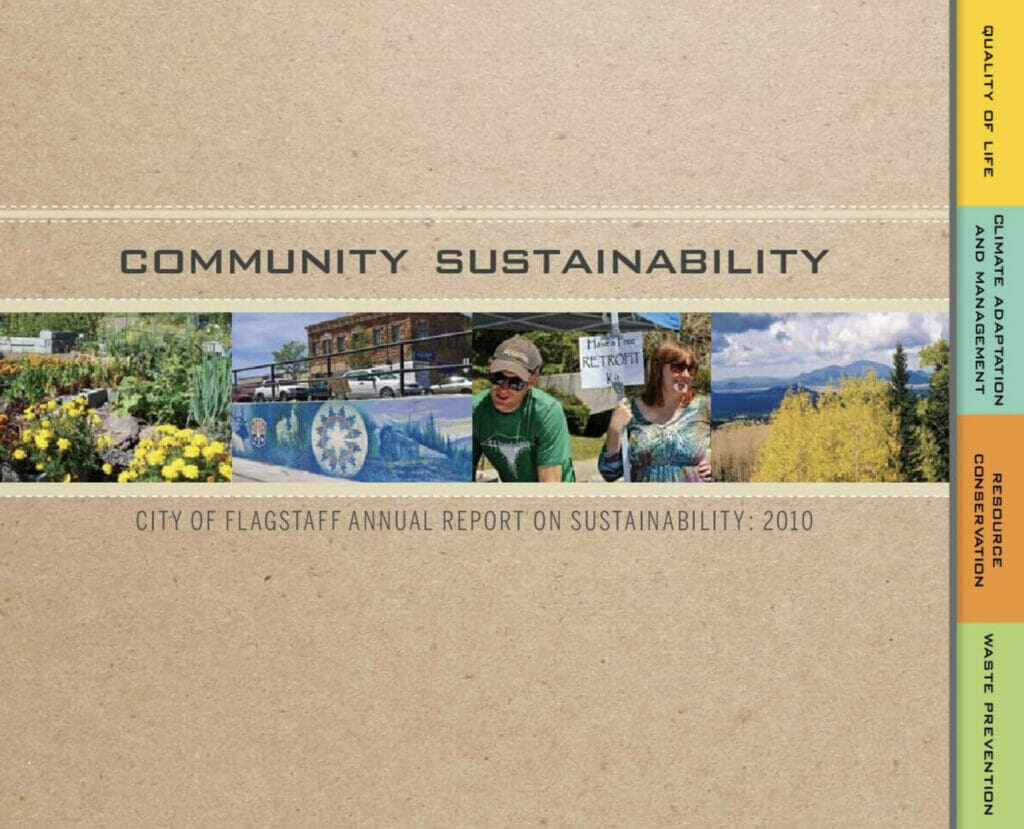
City of Flagstaff 2010 annual report
This year’s Annual Report on Sustainability celebrates the City of Flagstaff’s efforts toward sustainability made within the municipal organization and throughout the community. Sustainability requires an integrated commitment from every part of the organization, from public works to community enrichment to information technology. The 2010 Annual Report is an illustration of how every City Division contributes to improving municipal efficiencies (and effectiveness) and community well-being. The 2010 report highlights achievements such as the revitalization of San Francisco and Beaver Streets and the expansion of the Community Agriculture Project to include an additional garden in Sunnyside. It celebrates the City’s success in providing over 50 miles of FUTS trails and the selection of Flagstaff as one of eight “Inaugural Adaptation Communities” to participate in the first comprehensive climate adaptation program for local governments. The City of Flagstaff is dedicated to utilizing public resources efficiently while promoting a healthy, livable Flagstaff. This report provides the opportunity to reflect on the City’s successes and ensure that they keep raising the bar for Flagstaff as a vibrant, prosperous community
List of top 20 most populous cities in the U.S., and corresponding sustainability plans

Seattle health and equity assessment report
The City of Seattle, a 5-STAR Community, has experienced significant growth and prosperity over the past several years, but not all residents are receiving the benefits. To address issues of inequality and opportunity, Futurewise recently released the Seattle Health and Equity Assessment Report, which examines disparities of access to affordable housing, reliable transit, jobs that pay a living wage, and other city services and benefits
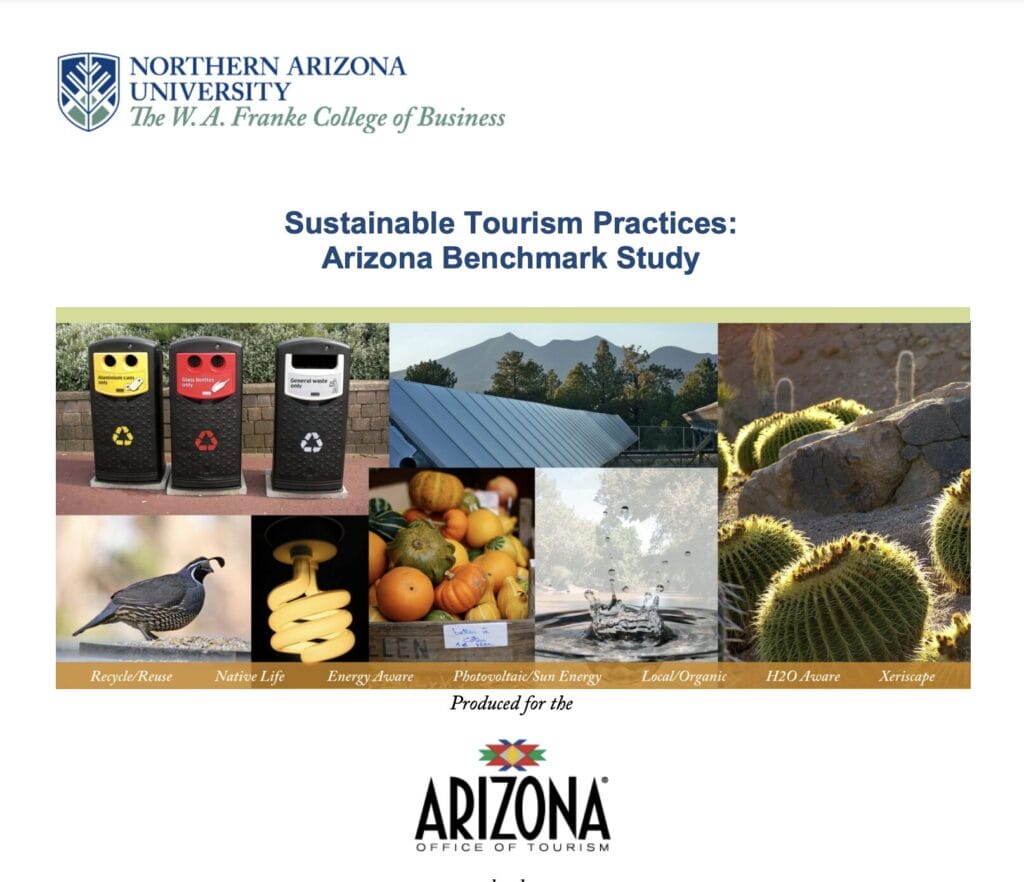
Sustainable tourism report
The Arizona Office of Tourism (AOT) contracted with the Arizona Hospitality Research & Resource Center (AHRRC) to conduct a survey of sustainable tourism practices in Arizona, the purpose to collect baseline data on current progress by the industry and establish benchmarks for future research. The Research Division of AOT and the AHRRC created an E‐survey which was sent to thousands of practitioners across industry sectors – lodging, restaurants/bars, attractions, travel and tour providers, and destination marketing organizations. In general, the study found that Arizona’s tourism industry is doing a great deal to build a more sustainable future. Large percentages are knowledgeable about sustainability issues, and are responding to community and customer concerns. The majority of organizations are recycling, reducing waste, conserving water and energy, and are celebrating local cultures and sourcing local products

Sustainable Tucson
Sustainable Tucson is a non-profit, grass-roots organization that builds regional resilience and sustainability through awareness raising, community engagement and public/private partnerships. Our members focus their action, advocacy and research through working groups addressing the unprecedented challenges of our time, economic meltdown, population pressures, climate change, and resource depletion. The Mission of Sustainable Tucson is to create a community-wide network of people and organizations facilitating and accelerating Tucson’s transition to sustainability through education and collaborative action.
Sustainable governance resources
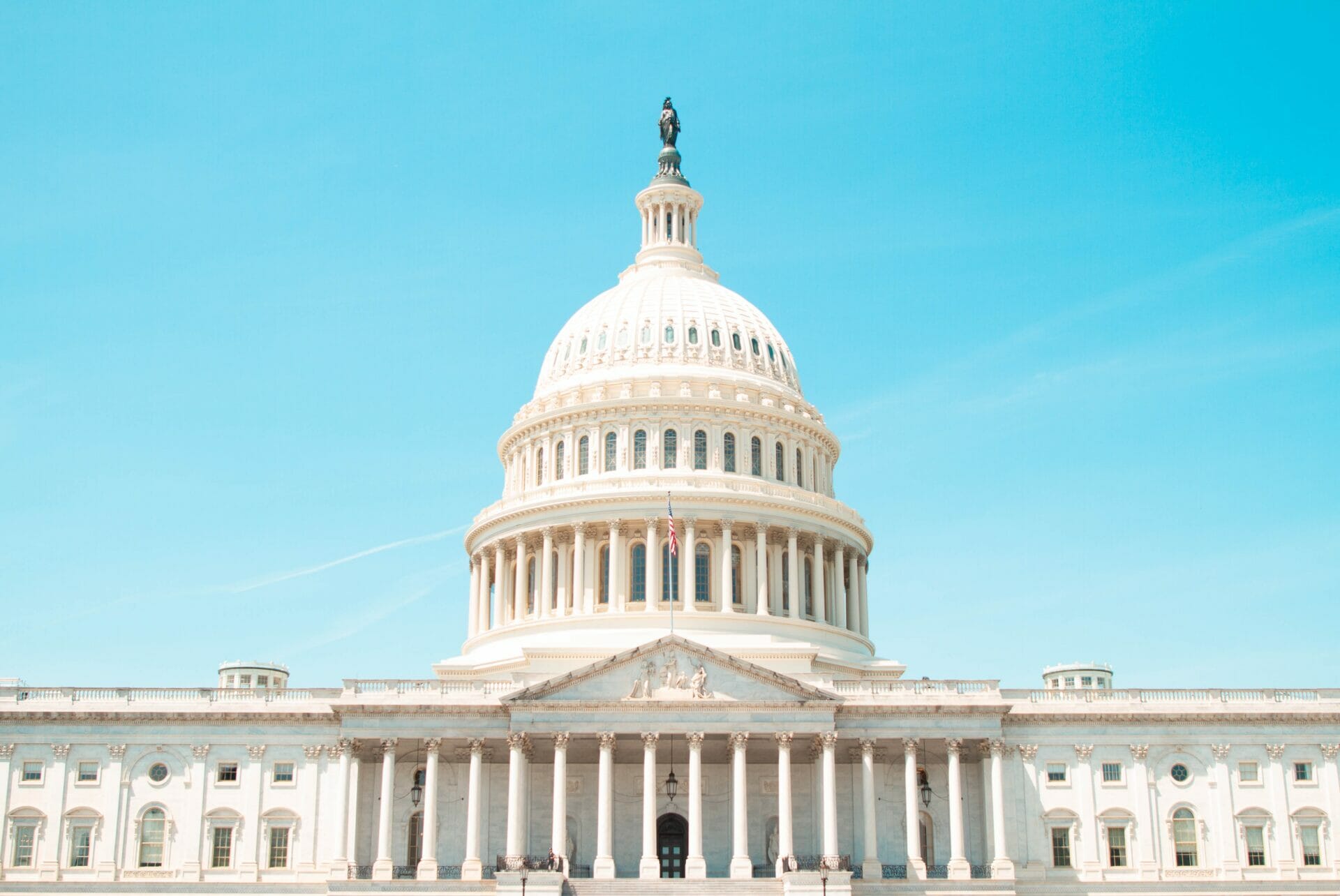
Brookings Institute
The Brookings Institution is a nonprofit public policy organization based in Washington, DC. The mission is to conduct high-quality, independent research and, based on that research, to provide innovative, practical recommendations that strengthen American democracy; foster the economic and social welfare, security and opportunity of all Americans and secure a more open, safe, prosperous and cooperative international system. Brookings Institute is consistently ranked as the most influential, most quoted and most trusted think tank.

Climate Assessment for the Southwest
The mission of the Climate Assessment for the Southwest program is to improve the region’s ability to respond sufficiently and appropriately to climatic events and climate changes. The program promotes participatory, iterative research involving scientists, decision makers, resource users, educators, and others who need more and better information about climate and its impacts. CLIMAS investigators conduct research on the nature, causes, and consequences of climate change and variability in the southwestern United States. The program also supports efforts to improve climate forecasting in the region.
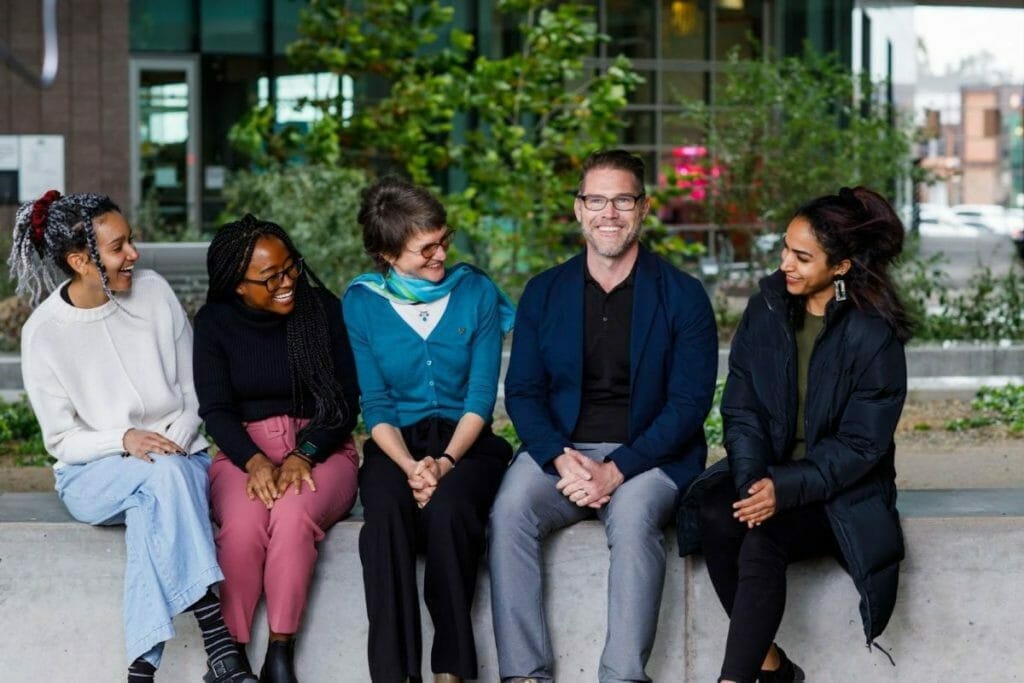
Climate Voices, Science Speaker Network
The Climate Voices network brings non-political conversations about the research findings of the majority of climate scientists to citizens across the United States and Puerto Rico. Scientists and other experts meet with neighbors and community organizations to initiate discussions about the local effects of a changing climate and possible ways to address impacts. Use the map to find a speaker near you and invite them to local meetings. View the resource.

IBM Center for The Business of Government
Connects public management research with practice. The Business of Government helps public sector executives improve the effectiveness of government with practical ideas and original thinking. Sponsoring independent research by top minds in academe and the non-profit sector, and create opportunities for dialogue on a broad range of public management topics.

Smart Cities Dive
Smart Cities Dive is a social media community. It provides a forum where users can contribute to the site as well as research and network with other urban future thinkers.
Solar and energy efficiency resources
Guidebooks and policy briefs
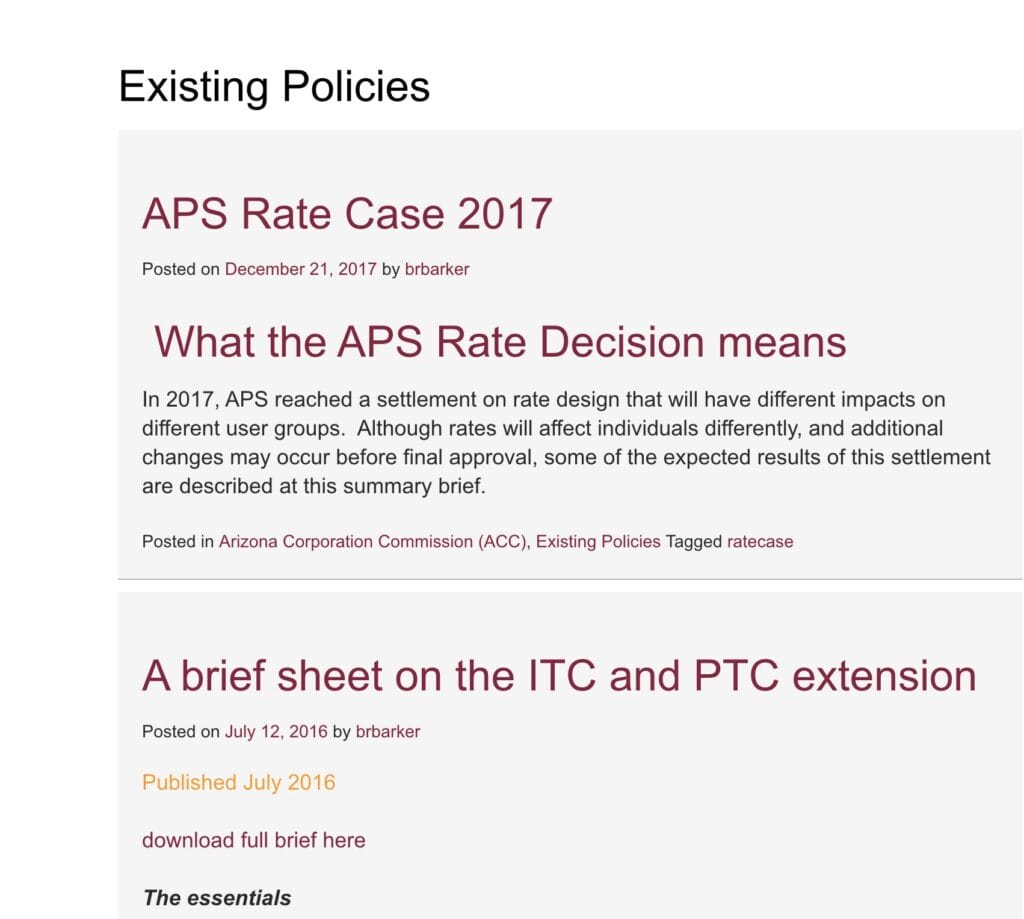
Seattle health and equity assessment report
EPIC provides informed, timely and fact-based summaries on energy policy issues that affect Arizona. Housed in the Center for Law, Science and Innovation, the organization’s goal is to advance Arizona’s energy industry potential, energy security and public welfare. They also provide downloadable policy briefs on a variety of scales. EPIC’s policy briefs include a comprehensive scope of policies, from the local to national level.
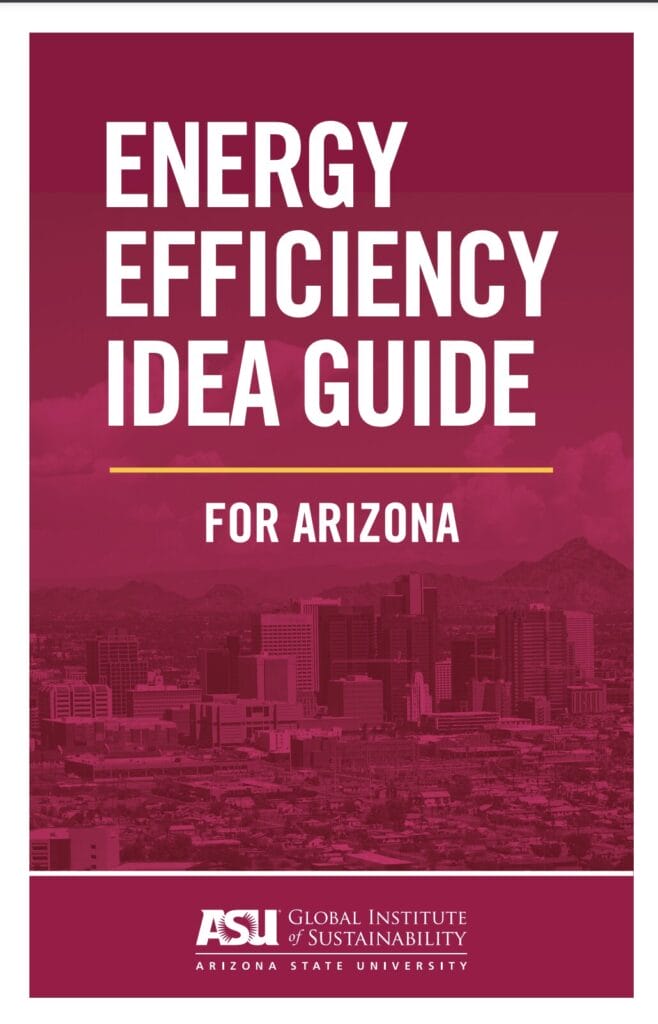
Energize Phoenix: energy efficiency policy briefs and resources
Energize Phoenix, a previous grant partnership involving the City of Phoenix, Arizona Public Service (APS) and ASU’s Global Institute of Sustainability published the following Energy Efficiency Idea Guide to provide policymakers and stakeholders a quick-read of forty-six ideas for potential policies, programs and initiatives that can increase the adoption of energy efficiency in the built environment in Arizona.
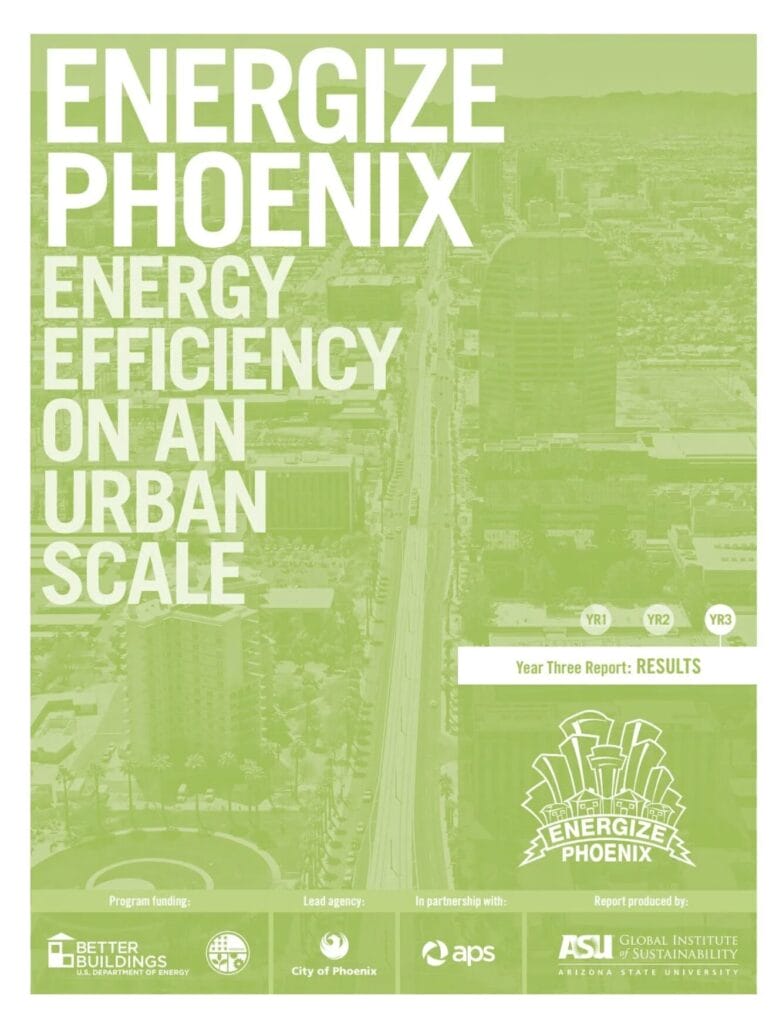
Energize Phoenix: final report
This is the third report published by the Institute of Sustainability at ASU on behalf of the Energize Phoenix project. The purpose of the reports is to cumulatively present results and lessons learned from a large-scale effort to create and sustain energy efficiency in a diverse urban corridor in the city of Phoenix. This report provides findings and lessons learned during Year Three of the program.
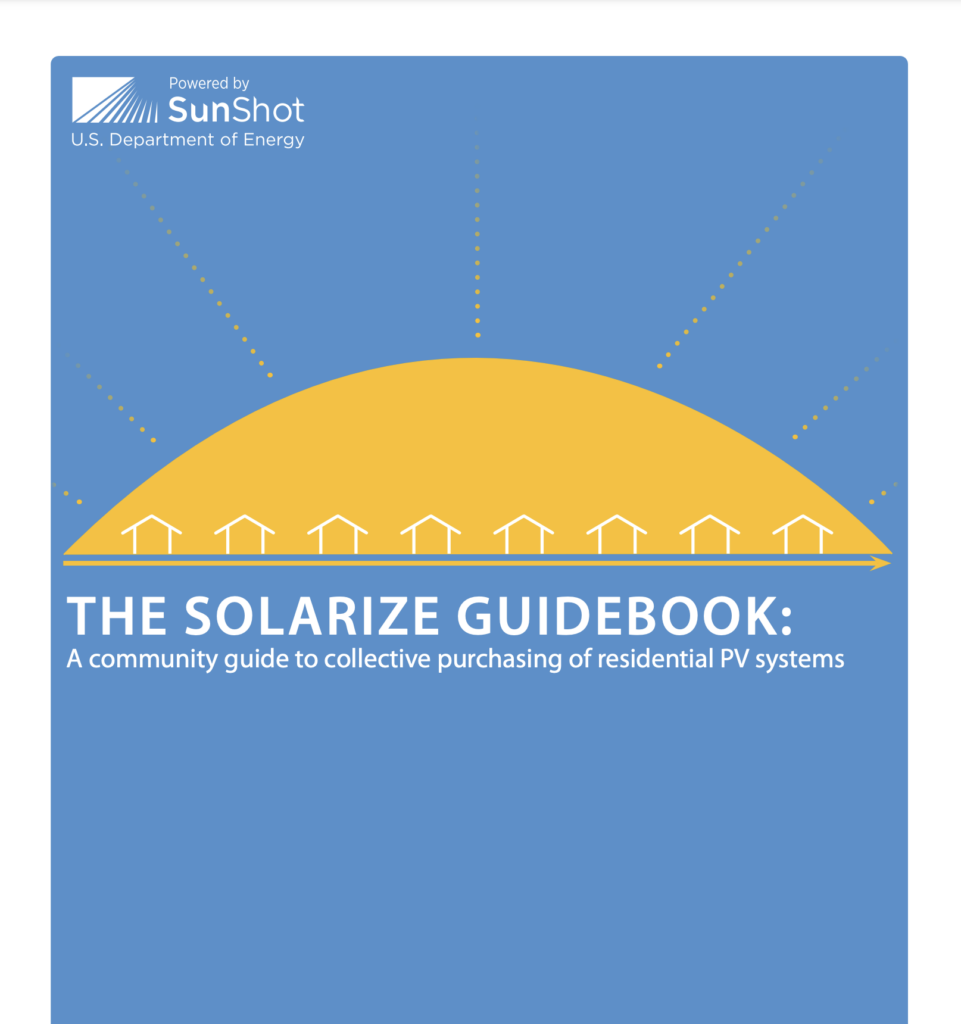
The solarize guidebook: a community guide to collective purchasing of residential PV systems
This guidebook is intended to be a roadmap for project planners and solar advocates who want to create their own successful Solarize campaigns. It describes the key elements of the Solarize Portland campaigns and variations from projects across the country, along with lessons learned and planning templates.
The guidebook is funded by the DOE SunShot Initiative, a collaborative national initiative to make solar energy cost competitive with other forms of energy by the end of the decade.
Recognition programs
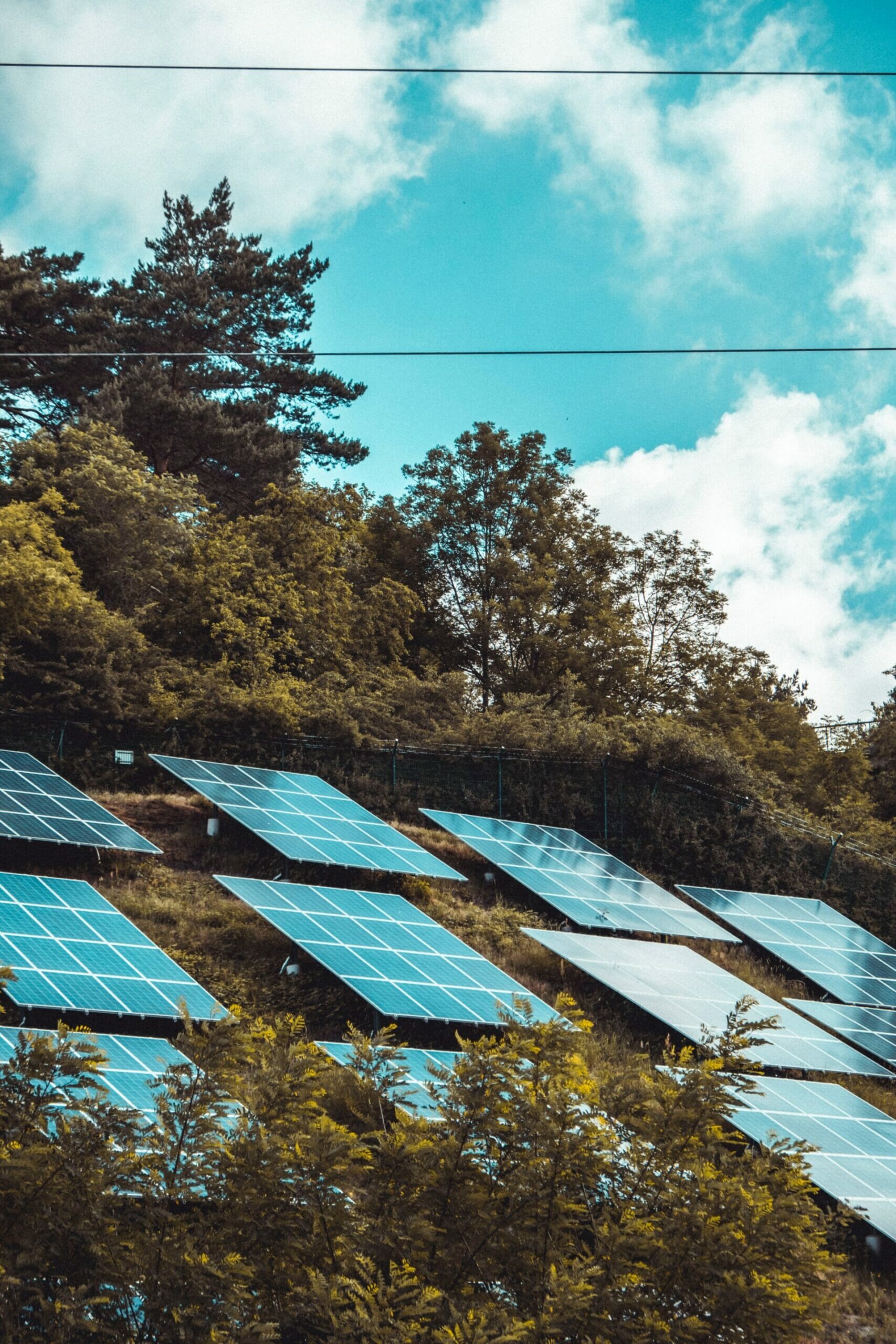
SolSmart
SolSmart is a national recognition and a no-cost technical assistance program for local governments designed to drive greater solar deployment and help make it possible for even more American homes and businesses to access affordable and renewable solar energy to meet their electricity needs. The SolSmart designation program, coupled with robust and agile technical assistance, will spur communities across the country to earn recognition for achievements that distinguish them from their peers as they become more solar-friendly, and in doing so, ignite local solar markets while establishing consistency in solar practices across the country. SolSmart supports the goals of the SunShot Initiative to make it faster, cheaper, and easier to go solar.
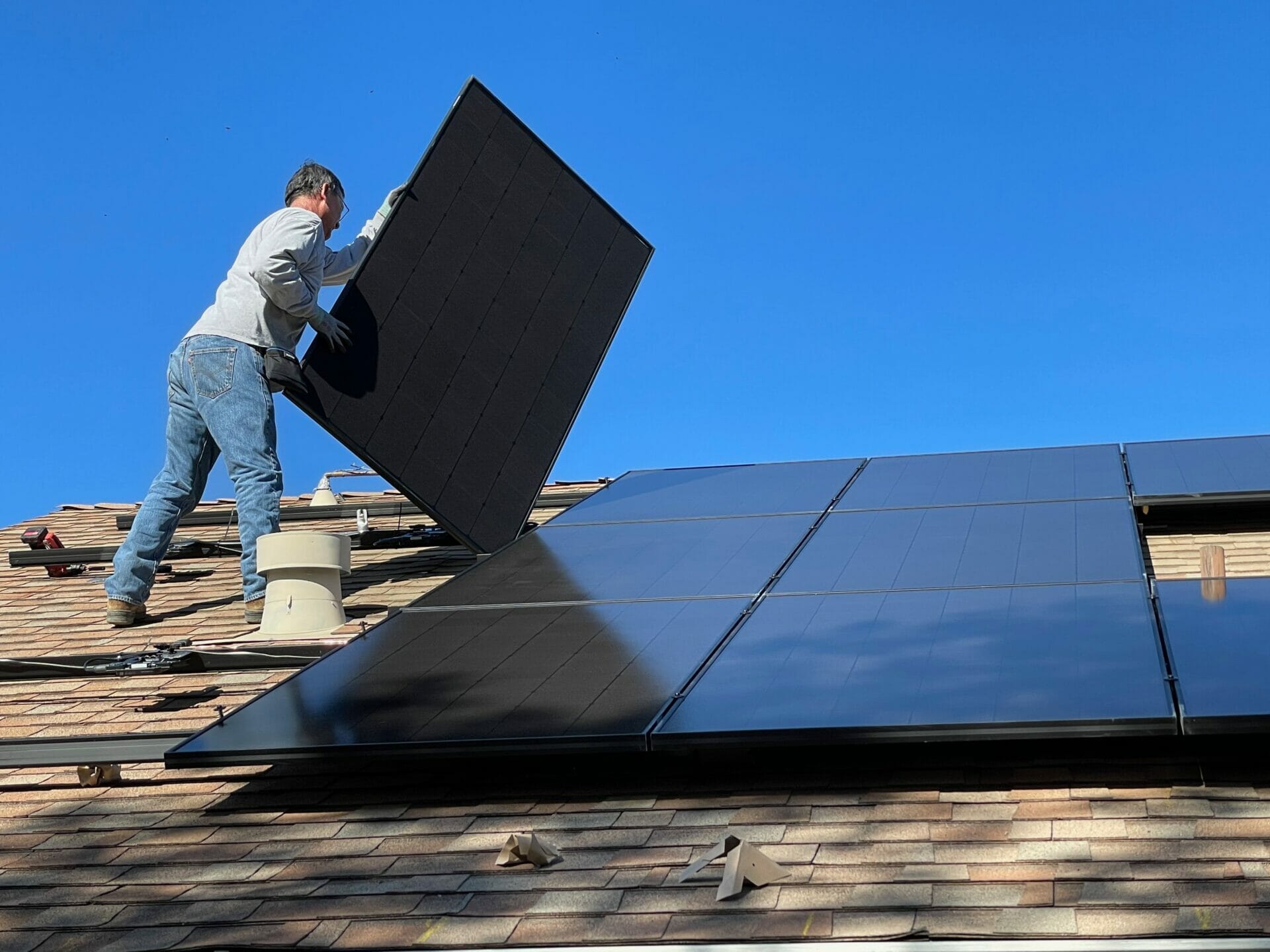
SunShot initiative
The U.S. Department of Energy (DOE) Solar Energy Technologies Office focuses on achieving the goals of the SunShot Initiative, which seeks to make solar energy cost-competitive with other forms of electricity by the end of the decade. SunShot funds cooperative research, development, demonstration, and deployment projects by private companies, universities, state and local governments, nonprofit organizations, and national laboratories to drive down the cost of solar electricity to $0.06 per kilowatt-hour or $1 per watt (not including incentives).